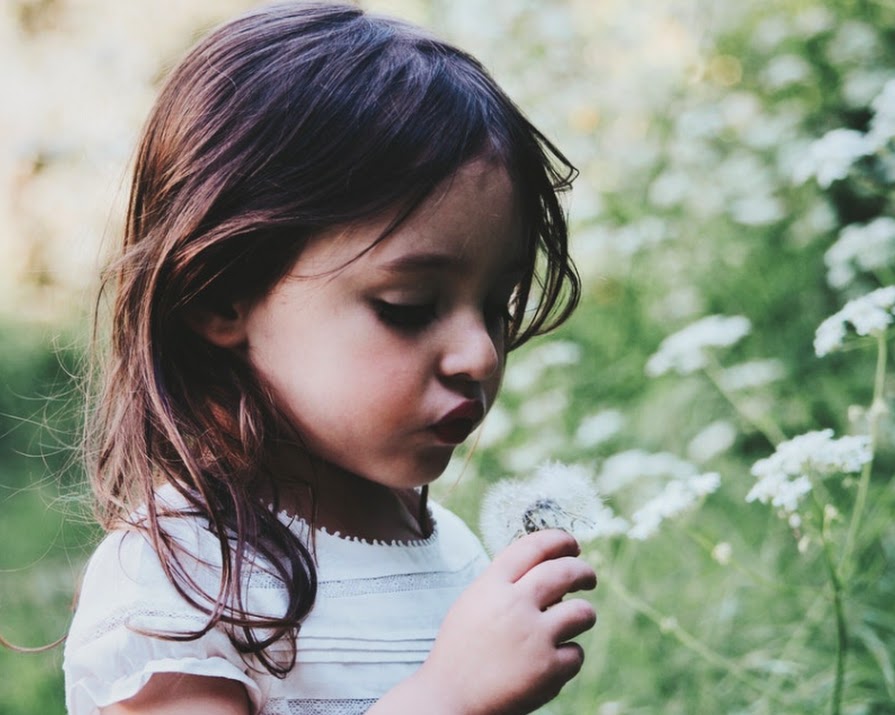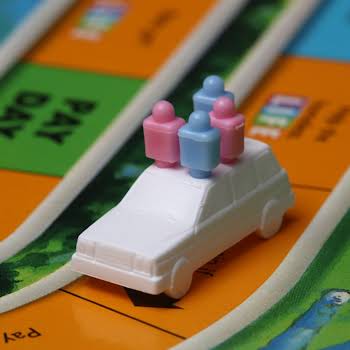
6 unique parenting styles from around the world that might come as a surprise
By Amanda Cassidy
26th Jun 2020
26th Jun 2020
Love is love is love when it comes to the crux of universal parenting, but what works in France for bebé doesn’t necessarily work in our cultural context. Amanda Cassidy reports.
We mums are a touchy bunch of sleep-deprived mama bears, so when others suggest there may be a better way of raising our children than simply muddling through with empty threats and bribes, it tends to get our back up.
Most first-time parents are more vulnerable when it comes to being offered well-meaning advice on the best way to bring up baby.
Related: Peaceful parenting: who has time for that?
From co-sleeping to swaddling and discipline — everyone seems to have an opinion. Even books are now suggesting that our way may not necessarily be the ‘best way’.
Pamela Druckerman’s book, French Children Don’t Throw Food, is an example of this. Apparently, French women are better at parenting because they raise their children not to chuck chips (sorry, French fries) during dinnertime.
Their secret? Not entertaining instant gratification.
They teach them ‘cadre’ or boundaries from a very early age. This means they have to wait at the table during four-course meals. They are taught to say ‘Bonjour’ politely to grown-ups and sleep through the night quicker because French mothers don’t race in the minute their baby stirs.
My understanding is that French women (critics say it is mostly Parisienne-mamas and doesn’t reflect French mothers elsewhere accurately) are not as quick to immerse themselves so deeply into parenthood.
Related: Peaceful parenting: Who has time for that?
“While we are still stuffing cabbage leaves into our boulder-holders, and self-medicating with Mars bars, the book suggests that those effortlessly glamorous French mums are back to their impossibly chic selves”
Around the world
State-run creches take children from just a few months of age and many French mums resume work around 3 months after the birth of their child. While we are still stuffing cabbage leaves into our boulder-holders, and self-medicating with Mars bars, the book suggests that those effortlessly glamorous French mums are back to their impossibly chic selves. Well, bully for them.
The Danish way of parenting has been hailed as one of the happiest ways to raise a child. And it is not complicated. The focus is on the well-being of the child through interdependence.
The school system prioritises teamwork and building empathy rather than individual achievement. In fact, there is even an easy-to-remember acronym that spells out PARENT (genius) — Play, Authenticity, Reframing, Empathy, No ultimatums and Togetherness.
Family time is a big part of day to day life as well as allowing children more independence than we may be used to giving here.
In Japan, the idea of giving your child more freedom echoes that of Danish parenting styles. It is not uncommon to see very young children going to school unaccompanied on the city buses or trains.
The low crime rate helps, but it is the feeling that the rest of the community can be trusted to help look after its own is refreshing. Of course, parenting there is hyper-competitive but parents are notoriously private about their children’s activities.
No one culture has a lock on the best parenting techniques.
There is no bragging about little Johnny being on the A sports team. The ultimate goal is simply success and everything else is considered indulgent.
In Norway, children in day-care sleep outside, even in sub-zero temperatures. In China, tradition is everything and respect for elders is paramount.
This means that parents are very involved with their child fostering a closeness that is not always physically affectionate.
It takes a village
In very family-oriented cultures like Italy and Greece, there is an underlying belief that it takes a village to raise a child to be happy and well-adjusted grown-ups. Parenting styles there promote communal learning where children can watch and imitate the adults around them.
Of course, there is no universal ‘best’ way to parent. There are millions of different ways to raise your child but the one obvious common denominator is love.
Research carried out at Duke University in North Carolina found that no one culture has a lock on the best parenting techniques.
They examined how parents raise their children in 13 cultural groups across nine countries: China, Colombia, Italy, Jordan, Kenya, the Philippines, Sweden, Thailand and the United States.
In countries like Kenya, those children whose parents exert a lot of control over behaviour are typically the most loving and warm, and their children thrive. Yet, in Sweden, the UK and Italy, parents who tend to be the most loving are also less controlling. Ergo… we are all just doing our best.
Balance
I am all for exploring new and better ways to drag up my brood. In fact, I still have a lot of unanswered questions I felt some of these international parenting styles might answer.
Like how you clean baby poop off your diamond ring without wailing; what to do when your three-year-old lies on the floor of the supermarket and refuses to move; how to find a 37-year-old au pair who drives and (crucially) doesn’t want to live in?
As with everything in life, the key is finding that balance — picking and choosing what works for you and to hell with the rest.
I aspire to be as chic a mother as those Parisiennes but wouldn’t give up all those years of twilight adventures with my babies for the world.
I’m as hands-off as the Japanese mums when it comes to free play but I’ll never not wince when my son hurtles towards traffic on his scooter.
Besides, I have huge plans to become a helicopter parent in their teenage years. The problem with reading books like this or comparing your parenting with others is that knowing the right thing to do and doing it are two completely different things.
I inherently know that screaming at my six-year-old to ‘stop screaming at me, you are driving me nuts’ is totally counterproductive.
And there lies the crux of the problem — the inability to practice what we preach. Let’s be honest, we are all as fallible as the next tantrum-weary mother — no matter where we are from.
As for me, muddling through has worked fine for me, thus far — and my kids are total rockstars.
Image via Unsplash.com
Read more: The only parenting book you’ll ever need
Read more: The pressure to be the best parent ever
Read more: The art of raising polite children























